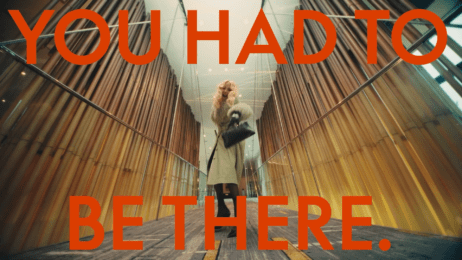While the future can be hard to gauge, Dan Berger recently offered his predictions at MPI’s 2016 World Education Congress. Berger is the CEO of Social Tables, a Washington, DC-based hospitality software company whose products have been used to plan and execute more than 1 million events since 2011. In two well-attended and engaging presentations in Atlantic City, Berger shared 20 future trends that he believes will impact the meeting and hospitality industry.
 1. The growing middle class will have a profound effect. According to Berger, globally there were 1.8 billion members of the middle class in 2009; there will be 3.2 billion in 2020 and 4.9 billion in 2030. The bulk of this growth is coming from Asia, especially China and India. This group has money for travel; inventory and services will be needed to accommodate them. The industry is responding, with 21 percent more rooms under construction around the world than a year ago.
1. The growing middle class will have a profound effect. According to Berger, globally there were 1.8 billion members of the middle class in 2009; there will be 3.2 billion in 2020 and 4.9 billion in 2030. The bulk of this growth is coming from Asia, especially China and India. This group has money for travel; inventory and services will be needed to accommodate them. The industry is responding, with 21 percent more rooms under construction around the world than a year ago.
2. The outlook for the U.S. economy is not as rosy. Berger points out that the American economy is cyclical, with recessions historically occurring every five years. The last recession was in 2008, so Berger believes we are overdue and will experience another one by 2018. This will be followed by a period of growth and expansion.
3. The golden age of travel will continue. Increased airlift to remote and even formerly forbidden areas (such as Cuba) has made it easier than ever to explore the world. As they move toward retirement, aging yet healthy Baby Boomers will take advantage of this.
4. Consolidation is the new norm in every sector of the hospitality industry—affecting vendors, suppliers and buyers. Purchasing power is becoming more centralized; the result is that price competition may suffer and the hospitality industry will be more profitable than ever.
5. The internet will continue to transform the lives of users, especially those with smartphones. Yet currently, less than half of the 7.4 billion humans on earth are online. There is huge potential to attract users in developing nations.
6. Technology will continue to impact planners. CPU power is increasing while hardware is shrinking. Planners will increasingly rely on wearables, drones and self-driving cars. Virtual and augmented reality will allow planners with an iPad to accurately display a ballroom to a client with their event in it, before the event takes place.
7. The division between humans and animatronics will blur; when booking a room or event, people will have trouble differentiating whether they are speaking to a real person or a computer.
8. Efficient robots will become more prevalent in hotels—cleaning and delivering products to guests, and setting up and tearing down event rooms. This will cut costs for properties, and require industry workers to evolve their skills to remain relevant.
9. Virtual events will grow in popularity. Eventually, it will be difficult to discern the difference between what is real and what is virtual.
10. Artificial intelligence will improve events, suggesting which city would be the best fit based on potential attendees, or what size ballroom should be booked for an event based on the number of expected guests.
11. A governing body for the meetings industry will emerge. This transparent organization will set standards and best practices, and will offer certifications.
12. Meeting planning will become a more respected and strategic function, as companies perceive live events as a viable revenue source. Event professionals will report to CEOs rather than marketing departments, and will have greater impact in their companies. Companies will increase the amount they budget for meetings and events.
13. The annual meeting will become an endangered species, as people will want information more quickly. The annual meeting will be replaced by decentralized meetings that occur more frequently.
14. Meetings will become smaller and more intimate, while events will become larger and more expensive. Thanks to robots, complex productions will become easier to organize.
15. More content for meetings will be crowdsourced from attendees. Peer-to-peer learning will become the dominant educational style.
16. Consumers will expect events to be free. Companies may use strategies such as crowdfunding or subscription models to present events, which will increasingly include virtual audiences.
17. Face-to-face interaction will become more important than ever, and education will be de-emphasized at meetings because content will be available online. The purpose for meeting will be more about networking and discussion.
18. When measuring ROI, the room block will play second fiddle to economic impact. Attendees want to explore the destinations they meet in, and success will be determined by factors such as shopping revenue, visitation to local restaurants and use of local transport.
19. More attendees will choose accommodations at private homes (via services like Airbnb) rather than chain hotels. CVBs, which currently garner a great deal of income via hotel taxes, will include taxes from the home sharing economy.
20. Second tier cities will become premier destinations, as attendees interested in these unique destinations will be able to work as they travel to them in hands-free cars.




